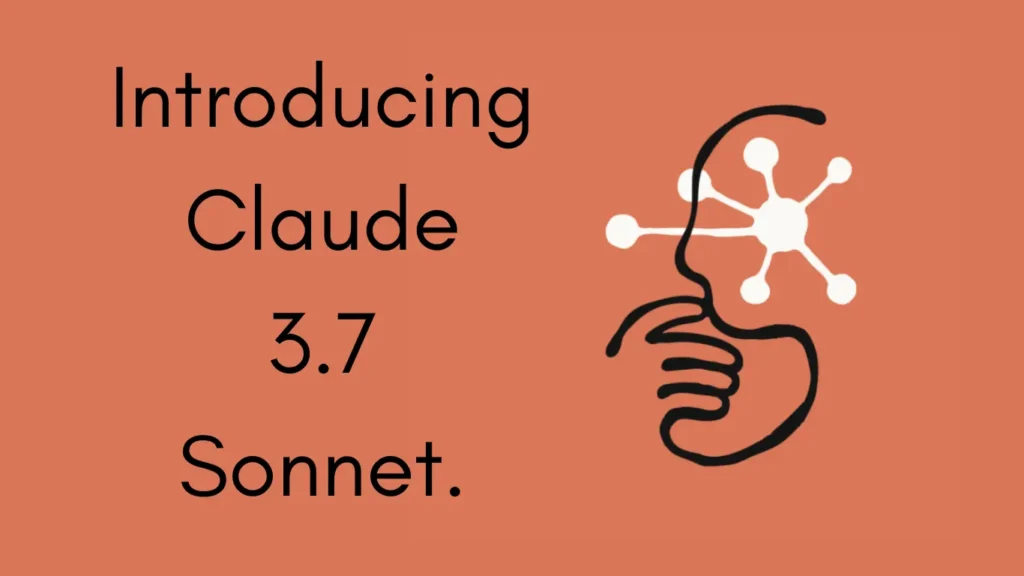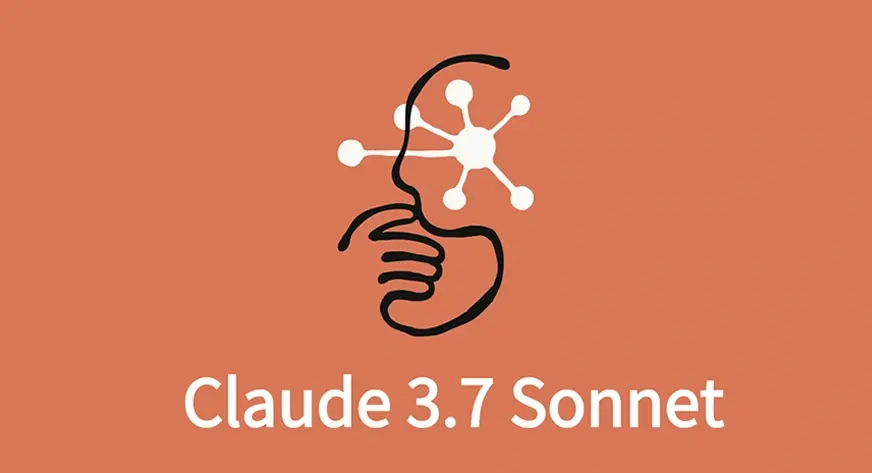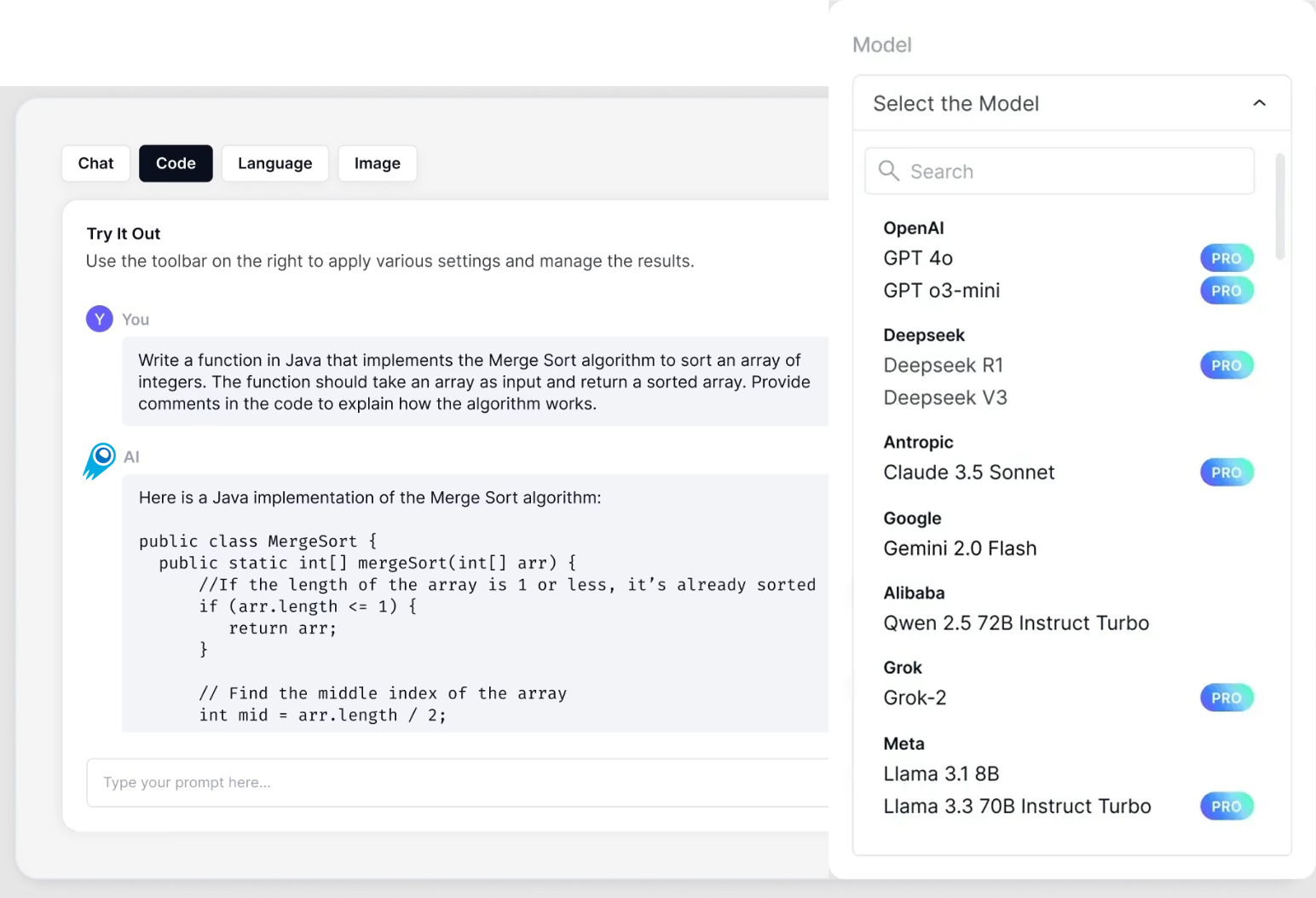Claude 3.7 Sonnet API provides programmatic access to Anthropic’s advanced reasoning model released in February 2025, accessible via the model string ‘claude-3-7-sonnet-20250219’.

Introduction to Claude 3.7 Sonnet
In the rapidly evolving landscape of artificial intelligence, new models continue to push the boundaries of what’s possible in natural language processing and reasoning capabilities. Released by Anthropic in February 2025, Claude 3.7 Sonnet represents a significant advancement in AI technology, offering developers and users enhanced performance across various applications. This comprehensive guide explores the key features, technical architecture, and practical applications of this innovative AI model, providing valuable insights for professionals looking to leverage its capabilities.
Claude 3.7 Sonnet builds upon the foundation of previous Claude models, incorporating sophisticated reasoning capabilities that enable it to handle complex queries with greater accuracy and depth. As a member of the broader Claude 3 family, this model combines efficient processing with advanced cognitive functions, making it particularly valuable for tasks requiring nuanced understanding and logical analysis.
Related topics:The Best 8 Most Popular AI Models Comparison of 2025
The Evolution of Claude AI Models
From Early Claude Models to 3.7 Sonnet
The journey to Claude 3.7 Sonnet began with Anthropic’s commitment to developing helpful, harmless, and honest AI systems. Early Claude models demonstrated impressive natural language capabilities but had limitations in complex reasoning tasks. With each iteration, Anthropic refined the architecture and training methodologies, gradually enhancing performance across various benchmarks.
The Claude 3 series marked a substantial leap forward, with Claude 3 Opus and Claude 3 Haiku addressing different needs in the AI ecosystem. Claude 3.5 Sonnet further improved upon these foundations, offering better balance between speed and capability. Now, Claude 3.7 Sonnet emerges as the most sophisticated version yet, incorporating advanced reasoning mechanisms and improved contextual understanding.
Key Evolutionary Milestones
Several critical developments characterize the evolution leading to Claude 3.7 Sonnet:
- Enhanced training methodologies that incorporate more diverse and comprehensive datasets
- Refined model architecture optimized for reasoning-intensive tasks
- Implementation of more sophisticated safety mechanisms to ensure responsible AI use
- Improved contextual understanding across longer conversations and complex topics
- Development of the specialized reasoning mode that distinguishes 3.7 Sonnet from predecessors
This evolutionary trajectory reflects Anthropic’s ongoing commitment to developing AI systems that combine powerful capabilities with responsible design principles, establishing Claude 3.7 Sonnet as a leading option for developers and users with demanding requirements.
Technical Architecture of Claude 3.7 Sonnet
Foundation Model Design
At its core, Claude 3.7 Sonnet utilizes an advanced neural network architecture optimized for natural language processing and reasoning tasks. While specific architectural details remain proprietary, the model implements sophisticated attention mechanisms that enable it to process and contextualize information across lengthy inputs and conversations.
The parameter scale of Claude 3.7 Sonnet balances computational efficiency with performance, allowing it to run effectively across various deployment environments while maintaining impressive capabilities. The model architecture incorporates specialized components designed specifically to enhance reasoning processes, distinguishing it from general-purpose language models.
Extended Reasoning Capabilities
The defining feature of Claude 3.7 Sonnet is its extended thinking mode, a specialized reasoning system that allows the model to engage in more deliberate analysis before responding to complex queries. This mechanism functions similarly to a “thinking step” where the model processes information more thoroughly than standard language models typically do.
When activated, this reasoning mode enables:
- More structured analysis of complex problems
- Better identification of logical inconsistencies
- More reliable handling of multi-step reasoning tasks
- Improved performance on tasks requiring careful deliberation
- More thorough evaluation of potential answers before responding
This capability represents a significant advancement in AI reasoning capabilities, making Claude 3.7 Sonnet particularly valuable for applications requiring sophisticated analysis and problem-solving.
Training Methodology
Claude 3.7 Sonnet’s development involved extensive training on diverse datasets covering a wide range of knowledge domains and reasoning tasks. While specific training methodologies remain proprietary to Anthropic, the approach likely combines supervised learning with reinforcement learning from human feedback, emphasizing both performance and alignment with human values.
The training process incorporates sophisticated techniques for improving reasoning capabilities, likely including specialized training objectives targeted specifically at enhancing logical analysis and step-by-step problem solving. This focused approach to training contributes significantly to the model’s enhanced performance on complex reasoning tasks.
Key Advantages of Claude 3.7 Sonnet
Enhanced Reasoning Performance
The primary advantage of Claude 3.7 Sonnet lies in its superior reasoning capabilities, particularly when handling complex problems requiring multi-step analysis. When compared to previous models and competitors, Claude 3.7 Sonnet demonstrates measurable improvements in:
- Logical analysis of complex scenarios
- Mathematical reasoning and problem-solving
- Structured thinking across multi-step tasks
- Consistent application of defined principles
- Detection and correction of reasoning errors
These improvements make Claude 3.7 Sonnet particularly valuable for applications where accurate analysis and problem-solving are essential, such as decision support systems, educational tools, and research assistants.
Balanced Performance Profile
Claude 3.7 Sonnet offers an optimal balance between computational efficiency and advanced capabilities, positioning it between the lighter Claude 3.5 Haiku and the more powerful Claude 3 Opus models. This balanced profile makes it suitable for a wide range of applications and deployment scenarios.
The model delivers impressive response quality without excessive computational requirements, making it accessible to organizations with varied resource constraints. This efficiency translates to lower operational costs and broader applicability across different use cases and technical environments.
Safety and Responsible Design
Anthropic’s commitment to responsible AI development is evident in Claude 3.7 Sonnet’s design. The model incorporates advanced safety mechanisms that reduce the risk of harmful outputs while maintaining helpfulness across legitimate use cases.
The model demonstrates improved capabilities in:
- Refusing inappropriate requests without compromising overall functionality
- Maintaining neutrality on contentious topics
- Providing balanced perspectives on complex issues
- Avoiding reinforcement of harmful stereotypes or biases
- Transparently acknowledging limitations and uncertainties
These safety features make Claude 3.7 Sonnet particularly suitable for enterprise deployments and public-facing applications where responsible operation is essential.

Technical Performance Indicators
Reasoning Benchmarks
Claude 3.7 Sonnet demonstrates significant improvements on reasoning-intensive benchmarks compared to previous models. While specific benchmark results may vary across different test suites, the model shows particular strength in:
- Complex logical reasoning tasks
- Multi-step mathematical problem solving
- Analysis of contradictory or incomplete information
- Scientific reasoning across various domains
- Understanding and application of abstract principles
These improvements are particularly pronounced when the model’s extended thinking mode is activated, highlighting the value of this specialized capability for reasoning-intensive applications.
Language Understanding and Generation
Beyond reasoning capabilities, Claude 3.7 Sonnet maintains excellent performance on standard natural language processing metrics, including:
- Nuanced understanding of complex instructions
- Accurate comprehension across diverse topics
- High-quality text generation across different styles and formats
- Effective handling of ambiguity and context
- Consistent maintenance of conversation coherence
This balanced performance across both reasoning and language tasks makes Claude 3.7 Sonnet a versatile option for developers seeking a single model capable of handling diverse requirements.
Operational Metrics
From an implementation perspective, Claude 3.7 Sonnet offers compelling operational characteristics that make it suitable for production environments:
- Manageable latency profiles for interactive applications
- Reasonable token throughput for efficient processing
- Predictable resource utilization patterns
- Consistent performance stability across varied inputs
- Scalable deployment options through Anthropic’s infrastructure
These operational advantages make Claude 3.7 Sonnet accessible to organizations with varying technical resources and requirements, from startups to enterprise environments.
Implementation and Access
API Integration
Developers can access Claude 3.7 Sonnet through Anthropic’s comprehensive API, which provides flexible options for integration into various applications and workflows. The API supports standard request patterns with well-documented parameters for controlling model behavior and output formats.
Key API features include:
- Straightforward authentication mechanisms
- Flexible parameter configuration options
- Support for streaming responses for interactive applications
- Options for controlling response characteristics
- Access to the specialized reasoning mode for Pro account holders
The model identifier “claude-3-7-sonnet-20250219” is used when making API requests, allowing developers to specifically target this model within their applications.
Resource Requirements
While Claude 3.7 Sonnet delivers advanced capabilities, its resource requirements remain reasonable for most deployment scenarios. The model balances performance with efficiency, making it accessible to organizations with varied infrastructure constraints.
For optimal implementation, developers should consider:
- Appropriate token management strategies to optimize costs
- Efficient prompt engineering practices
- Strategic use of the reasoning mode for appropriate tasks
- Caching mechanisms for common queries
- Appropriate error handling and retry logic
These considerations help ensure effective utilization of Claude 3.7 Sonnet’s capabilities while managing computational and financial resources efficiently.
Application Scenarios for Claude 3.7 Sonnet
Enterprise Decision Support
Claude 3.7 Sonnet’s enhanced reasoning capabilities make it particularly valuable for enterprise decision support applications. The model can analyze complex business scenarios, evaluate options based on multiple criteria, and provide structured analysis to inform decision-making processes.
Specific applications include:
- Strategic planning and scenario analysis
- Risk assessment and mitigation planning
- Market analysis and competitive intelligence
- Financial modeling and investment evaluation
- Policy development and impact assessment
In these contexts, the model’s extended thinking mode provides particular value, enabling more thorough analysis of complex business problems.
Educational Applications
The advanced reasoning capabilities of Claude 3.7 Sonnet create new possibilities for educational technology applications. The model can serve as an effective learning assistant, helping students understand complex concepts, work through difficult problems, and develop critical thinking skills.
Valuable educational applications include:
- Personalized tutoring across various subjects
- Interactive problem-solving assistance
- Explanation of complex concepts with appropriate examples
- Feedback on student work with constructive suggestions
- Support for research and exploration of new topics
These applications benefit from Claude 3.7 Sonnet’s ability to provide structured explanations and guide students through multi-step reasoning processes.
Research and Development
For research-intensive organizations, Claude 3.7 Sonnet offers valuable capabilities as a research assistant and analysis tool. The model can help researchers explore complex topics, analyze information from multiple sources, and identify patterns and connections that might otherwise be overlooked.
Specific research applications include:
- Literature review and synthesis
- Hypothesis generation and evaluation
- Experimental design assessment
- Data analysis and interpretation
- Research communication and documentation
These applications leverage Claude 3.7 Sonnet’s ability to process and contextualize large amounts of information while applying structured reasoning to complex problems.
Content Development and Communication
Content creators and communication professionals can leverage Claude 3.7 Sonnet for various content development tasks, benefiting from its nuanced language capabilities and reasoning abilities. The model can assist with everything from initial brainstorming to polishing final drafts.
Valuable content applications include:
- Structured document creation across various formats
- Technical documentation development
- Educational content creation
- Marketing and communication materials
- Script and narrative development
Claude 3.7 Sonnet’s ability to understand content requirements and maintain consistency across lengthy documents makes it particularly valuable for complex content development projects.
Optimization Strategies for Developers
Effective Prompt Engineering
To maximize Claude 3.7 Sonnet’s capabilities, developers should implement effective prompt engineering practices tailored to the model’s strengths. Well-structured prompts that clearly articulate requirements and provide appropriate context yield the best results.
Key prompt engineering strategies include:
- Providing clear and specific instructions
- Including relevant examples when appropriate
- Breaking complex tasks into manageable components
- Specifying desired output formats and structures
- Using appropriate system prompts to establish context
These practices help ensure that Claude 3.7 Sonnet delivers optimal results across various application scenarios.
Strategic Use of Reasoning Mode
For Pro account holders, the strategic activation of reasoning mode represents an important optimization opportunity. This capability should be reserved for tasks that genuinely benefit from extended thinking, such as complex problem-solving, detailed analysis, and multi-step reasoning processes.
Effective use cases for reasoning mode include:
- Complex mathematical or logical problems
- Detailed analysis of nuanced scenarios
- Tasks requiring careful consideration of multiple factors
- Situations where accuracy is particularly critical
- Problems requiring structured, step-by-step thinking
By selectively applying this capability to appropriate tasks, developers can maximize the value of Claude 3.7 Sonnet while managing computational resources efficiently.
Conclusion:
Claude 3.7 Sonnet represents a significant advancement in AI reasoning capabilities, offering developers and users powerful tools for tackling complex challenges across various domains. Its balanced performance profile, enhanced reasoning capabilities, and manageable resource requirements make it an attractive option for organizations seeking to leverage advanced AI capabilities.
By understanding the model’s technical characteristics, implementing effective prompt engineering practices, and strategically applying its specialized reasoning capabilities, developers can unlock Claude 3.7 Sonnet’s full potential. As AI continues to evolve, this model stands as an important milestone in the development of systems that combine powerful capabilities with responsible design principles.
Whether supporting business decision-making, enhancing educational experiences, accelerating research processes, or improving content development, Claude 3.7 Sonnet offers valuable capabilities that extend the frontier of what’s possible with current AI technology. For developers and users willing to invest in effective implementation strategies, it represents a significant opportunity to enhance productivity, insight, and innovation across their organizations.
How to call this Claude 3.7 Sonnet API from our website
1.Log in to cometapi.com. If you are not our user yet, please register first
2.Get the access credential API key of the interface. Click “Add Token” at the API token in the personal center, get the token key: sk-xxxxx and submit.
3. Get the url of this site: https://api.cometapi.com/
4. Select the claude-3-7-sonnet-20250219 endpoint to send the API request and set the request body. The request method and request body are obtained from our website API doc. Our website also provides Apifox test for your convenience.
5. Process the API response to get the generated answer. After sending the API request, you will receive a JSON object containing the generated completion.



![Claude Agent[Skills] What it is and how to use](https://www.cometapi.com/wp-content/uploads/2025/10/Claude-AgentSkills-What-it-is-and-how-to-use-710x373.webp)